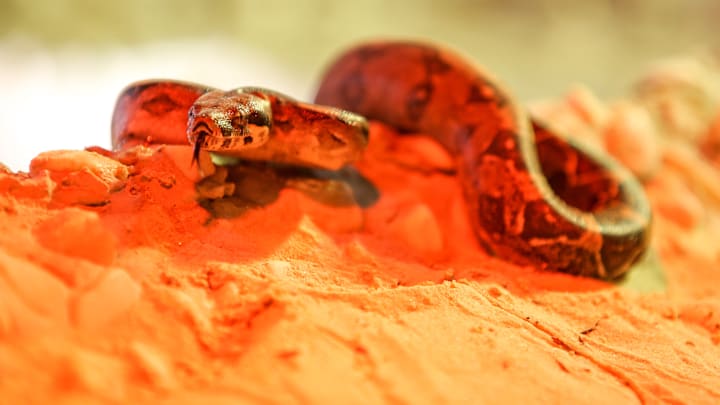We are on our way with the principal timeline for Harry Potter. The next time we have a significant time skip, it will be the Epilogue of Book 7. But we have a wonderful journey ahead of us and that starts wit the story of Harry's fateful journey to the zoo on his cousin's birthday.
A doomed outing
Before I met Professor Dumbledore, my main wizard was Gandalf. J.R.R. Tolkien uses the word "doom" with a quite different connotation. He uses it for topography with Mount Doom. He describes "mortal men doomed to die" in the opening of The Lord of the Rings. In The Silmarillion, there is even a place called "The Ring of Doom." But what he means by this can be explained by the Oxford English Dictionary, where "doom" means "fate, lot, irrevocable destiny."
If you ask the Dursleys about the trip to the zoo in this chapter, they'd probably think of doom as we find it in the Oxford Learners Dictionary: "death or destruction; any terrible event that you cannot avoid." In the picture Harry is doomed to have something like this happen.
We haven't gotten to that great conversation at Hogwarts where we learn about each witch and wizard's first act of magic, but we know that Harry has had a few. We hear about him shrinking a "revolting old sweater of Dudley's" without meaning to so he can avoid wearing it. Another time, he accidentally leaps tall buildings in a single bound and gets in trouble with his headmistress for climbing school buildings.
The fact is, no matter how loudly Uncle Vernon yells that "There's no such thing as magic" or how often it's proved that "Dudley's favorite punching bag was Harry," the son of Lily and James Potter is doomed in the Tolkien sense to do something amazing. (I personally hope there's a kid in the neighborhood who's been spying on Harry because he suspects that his neighbor has some kind of superpower. Yes, I'm a fan of The Incredibles.)
"The Vanishing Glass" is when we learn that Harry can do astounding things without meaning to. And if you look closely, you'll notice that one of those things is speaking in Parseltongue.
The Lesson: To thine ownself be true
This quote from William Shakespeare's Hamlet is from a great deal of advice from a father to a sun. You might not remember that it comes right after another famous direction: "Neither a borrower nor a lender be." Sending his son off into the world, Pollonius tells him to know when to keep his mouth shut ("Give thy thoughts no tongue, nor any unproportioned thought his act") and to behave himself "Be thou familiar, but by no means vulgar."). After telling Laertes how to stay out of trouble,, he turns to the idea that you need to be loyal to the person you are at heart:
"To thine ownself be true, and it must follow, as the night the day, thou canst not be false to any man."Pollonius, Hamlet
Harry has just spent ten years tamping down what makes him his own person and I think we can all relate to that. In my spare time, I volunteer as a crisis counselor and frequently get asked what someone should look or act like once they've figured out their identity. I always tell them that the right way for them to present themself to the world is only defined by them. Told a different way, I was told when starting to teach a class of young children to not expect perfect students, but to see each student as a perfect version of their age.
There's a danger in exploring who you are, but there's great worth in knowing who you want to be. The advice is to discover who you would like to be and give yourself permission to work on becoming that person.
